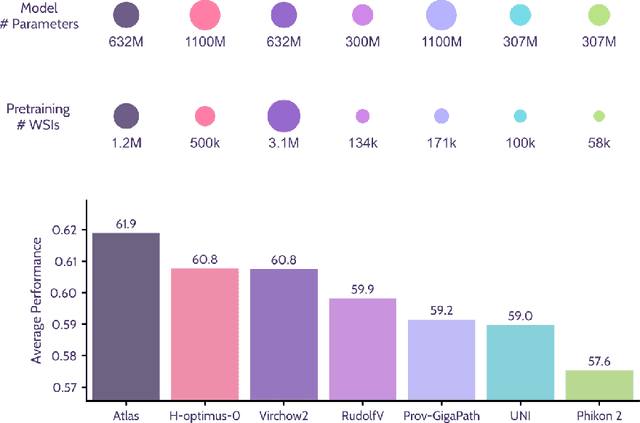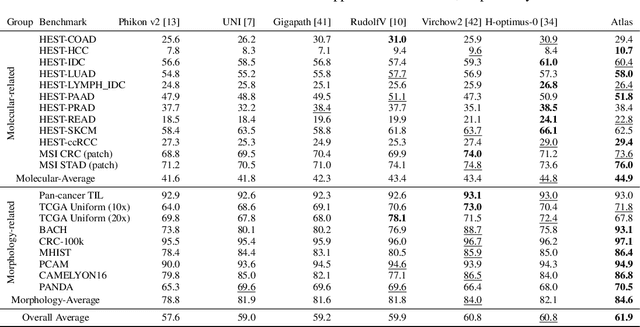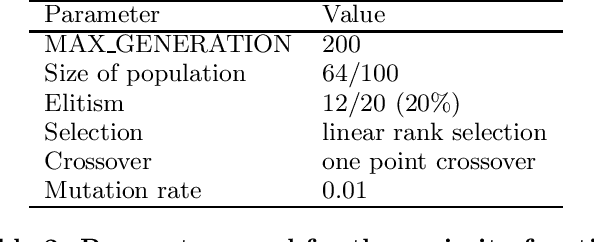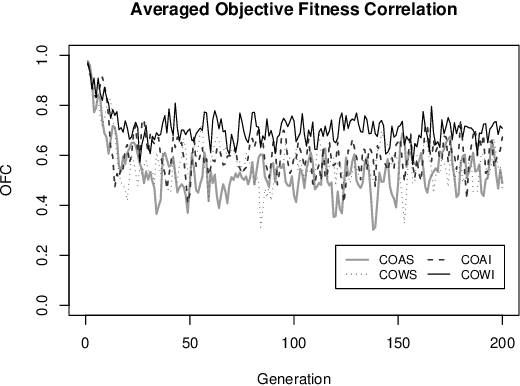Edwin de Jong
Atlas: A Novel Pathology Foundation Model by Mayo Clinic, Charité, and Aignostics
Jan 10, 2025



Abstract:Recent advances in digital pathology have demonstrated the effectiveness of foundation models across diverse applications. In this report, we present Atlas, a novel vision foundation model based on the RudolfV approach. Our model was trained on a dataset comprising 1.2 million histopathology whole slide images, collected from two medical institutions: Mayo Clinic and Charit\'e - Universt\"atsmedizin Berlin. Comprehensive evaluations show that Atlas achieves state-of-the-art performance across twenty-one public benchmark datasets, even though it is neither the largest model by parameter count nor by training dataset size.
A comparison of evaluation methods in coevolution
May 21, 2019



Abstract:In this research, we compare four different evaluation methods in coevolution on the Majority Function problem. The size of the problem is selected such that evaluation against all possible test cases is feasible. Two measures are used for the comparisons, i.e., the objective fitness derived from evaluating solutions against all test cases, and the objective fitness correlation (OFC), which is defined as the correlation coefficient between subjective and objective fitness. The results of our experiments suggest that a combination of average score and weighted informativeness may provide a more accurate evaluation in coevolution. In order to confirm this difference, a series of t-tests on the preference between each pair of the evaluation methods is performed. The resulting significance is affirmative, and the tests for two quality measures show similar preference on four evaluation methods. %This study is the first time OFC is actually computed on a real problem. Experiments on Majority Function problems with larger sizes and Parity problems are in progress, and their results will be added in the final version.
 Add to Chrome
Add to Chrome Add to Firefox
Add to Firefox Add to Edge
Add to Edge